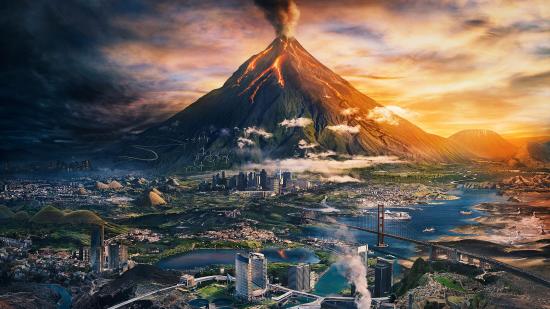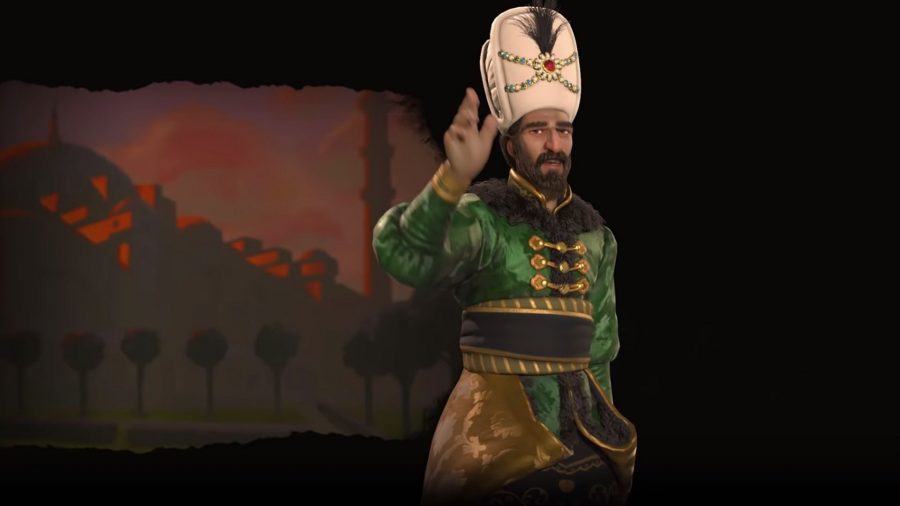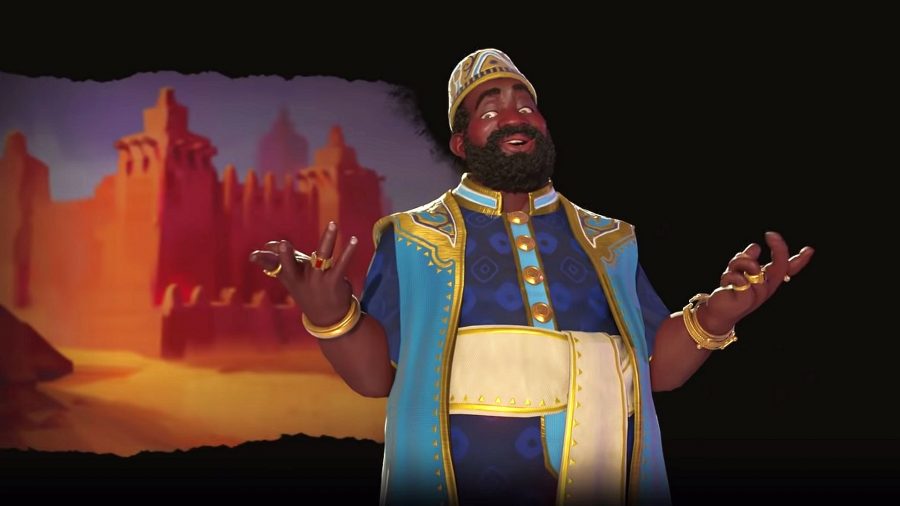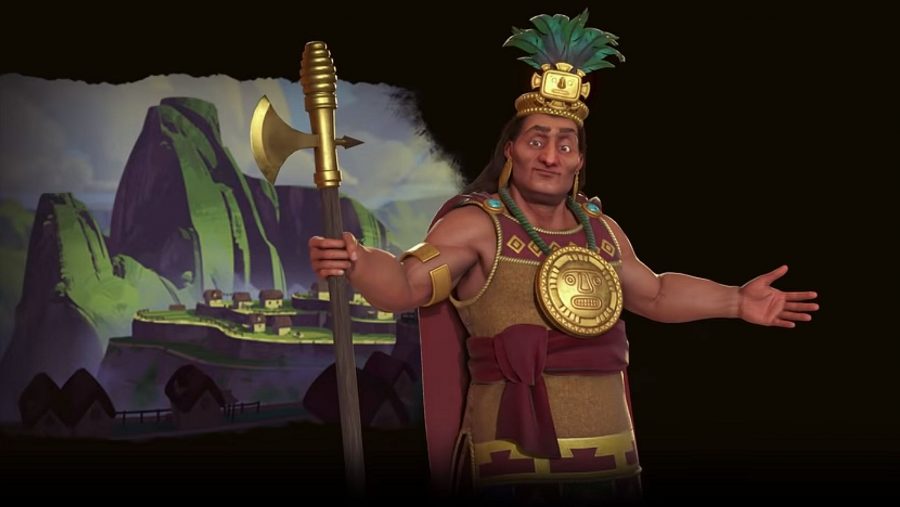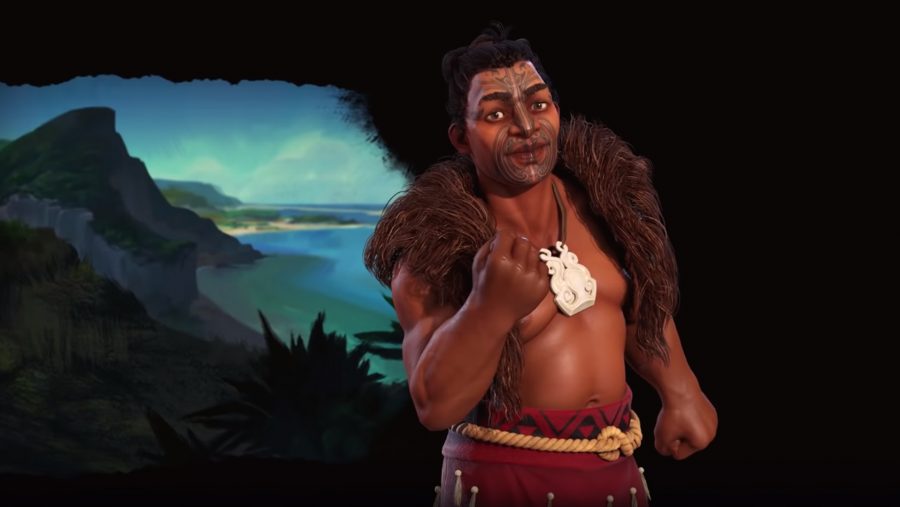Much of the hype around Civilization VI: Gathering Storm has understandably focused on its approach to climate change – a hot topic, as the planet continues to oscillate between fried and frozen. But Civilization’s civilisations are always the stars of the show, and never more so than in Gathering Storm – as we’ve been finding, many of the newcomers change the way you’ll play Civ in fundamental ways.
You can pump out Great People with Sweden, fittingly, as the cradle that gave us ABBA and Robyn. Canada and the Inca can build a prosperous realm in usually barren regions, such as tundra and mountains, while the conservationist Maori can claim the culture victory without any Great Works of Writing.
We could go on, and we shall. Read on for a roundup of all the new civs and their mechanics, along with a few quick tips for getting the most out of them.
We’re still playing, so look for in-depth guides for each civ coming soon as we build to release on February 14. Let’s just hope the seas don’t get there first.
Phoenicia
Forward settling is back, people, thanks to Phoenicia. The faction’s unique harbour, the Cothon, gives a whopping +50% production to all naval units and settlers. That enables them to vie with the Maori for a Domination win on water-heavy maps – but you can also use them to take other cities through soft power.
It gets better. Phoenicia’s unique ability means all coastal cities on the same continent as the capital will always be 100% loyal. Combined with Dido’s leader ability, which allows her to move her capital to any city with a Cothon, you’ll be able to settle all over the coast of your starting continent – without worrying about cities flipping sides. You can even pressure your neighbours to flip to you by moving your capital next door to them. The harbour requirement makes inland settlements more vulnerable, but stick close to the seas and Phoenicia can play an aggressive loyalty game.

Dido also makes a great choice for a one-city challenge. She gets +50% production for all districts in the city that contains her government plaza, as well as a bonus trade route for the plaza itself and each of its buildings. That’s a pretty huge boost for wherever you choose to hang your, uh, plaza.
The Ottomans
Are Sweden and Canada too nice for you? Try Gathering Storm’s warmongers, the Ottomans. All their siege units are half the usual production cost, which is an astonishing boost and especially helpful early on – catapults are relatively expensive in the Classical era, and a big help when conquering cities.
Domination is your best chance of victory by miles, and the Janissaries are another reason not to wait. They’re a terrific unique unit – stronger and cheaper Musketmen, essentially, that get a free promotion. But they consume population unless trained in a city you’ve conquered. That’s where the catapults come in – you’ll want to conquer somewhere as soon as possible, get an industrial zone and encampment set up, and crank out Janissaries when the time comes.
The Ottomans’ – Ottomens? – other uniques are less essential, but really helpful for mitigating the pitfalls of a violent playstyle. Ibrahim is Suleiman’s unique governor, and can nullify another nation’s loyalty pressure, preventing neighbours from flipping any shaky recent conquests. The Grand Bazaar, meanwhile, gives you more of whichever strategic resource its local city is already producing, and thus works with your commercial hubs to ensure you can field a first-rate army.
Sweden
Sweden are pretty simple to play – in short, they are all about Great People. They get +50 diplomatic favour each time they earn one, which is pretty huge, so get competing for as many different Great People as possible and you’ll be a strong contender for the Diplomatic victory. You get bonus scientist and engineer points from universities and factories, too, so you especially want to build campuses and industrial zones. That’s a small boost towards a Science victory, but if no one else is contesting it, could give you the win.
But Sweden has a lot of cultural bonuses too. The Open Air Museum is your unique improvement – it gives bonus culture and tourism for each different terrain type on which a Swedish city has been settled, which is a slight nudge to make you expand to strange places. It provides bonus loyalty, too, so isolated cities will be more resistant to flipping.
Mali
Mali are weird. Their unique, the Mandelaku Cavalry, gets gold from kills. And it protects nearby traders, which give you gold. Trade routes also give you more gold for each desert tile in your origin city, which is huge, since you’re going to start in the desert. What’s more, your unique commercial hub, the Suguba, gets better adjacency bonuses from rivers and holy sites – which means more gold.
It should be obvious at this point that Mali can get stupidly rich. You should probably expect to buy most of your empire, rather than build it. You could use Governor Magnus to bolster your production, but I say just pick up what Firaxis is putting down and get as rich as possible. Build a Suguba and/or a harbour in every city, trade with everyone and everything, pick policy cards that bolster your trade routes, and promote Reyna, the Financier as quickly as you can. You should probably spend all your titles on her until you can outright buy districts with gold.
But don’t let the shameless pursuit of material wealth corrupt your spiritual side. Remember that desert tiles don’t just mean bonus trade route gold – they also give bonus food and faith, and the Suguba discounts faith purchases and benefits from stronger holy site adjacencies. You can develop a religion to pursue the Religious victory, sure, but adopting beliefs that let you purchase more things with faith will mean that you have not one, but two abundant currencies with which to buy stuff. If someone else is contesting the Religious victory, that’s fine – buy a massive army of mercenaries and zealots and get the Domination win. Hey, there’s not much in this game that money can’t buy.
The Inca
The Inca are Gathering Storm’s builders and boomers, but only if you settle near mountains. Their domestic trade routes get +1 food for every mountain in their origin city, but remember it’s the origin city that gets the food and production from those domestic trade routes.
This means you need money to make the most of the Inca’s bonuses – use terrace farms to grow your first few cities despite the hilly terrain, research Currency asap, and set up commercial hubs with markets. Then, when you found a new city, buy as many mountain tiles as you can afford, send a trade route to your capital, sit back, and watch it flourish. The Inca can even work the mountains you’ve just bought – they provide two production and one food for each adjacent terrace farm. You still need to leave space for mines, but it’s probably worth it if you can get at least three around a single mountain tile.
Related: Learn more about the expansion in our Civ VI interview
Get rich quickly, maximise your uniques, and you can build a core of powerful cities to pursue any victory type. If you fancy a bit of conquering, however, the Incas’ unique Warak’aq is a lot deadlier than you might think for a recon unit. It has the same ranged attack as a crossbowman and can shoot twice if it still has movement points, of which it starts with three. Get the ambush promotion, and you obviate its only weakness – a pretty squishy melee attack. You might want to build several scouts and – for once – take the Survey social policy in the early game, to train them up faster. Upgrade them to Warak’aqs and you’ve got a nasty army for the Medieval period.
Canada
Scotland’s tyrannical reign over the prestigious ‘most culturally stereotypical unique improvement’ award in Civ is at an end. Civ VI’s Canada is built around the ice hockey rink. This key improvement absorbs culture from adjacent snow and tundra tiles, while researching flight brings tourism later in the game. Professional sports, meanwhile, add production and food. You can only build one per city, and only in tundra or snow – but under Wilfrid Laurier, Canada can build farms in tundra, which can offset the growth issue.
That said, you want to nurture your cities as much as possible when going for a Peaceful win, so sending domestic trade routes to a breadbasket city in a more fertile climate is a sensible play. Your unique unit, the Mountie, can establish national parks if you need a late-game push.
Read more: Advance on the best strategy games on PC
If someone else is contesting the Cultural victory, Canada can pivot to Diplomatic. Your unique ability gets you diplomatic favour for every 100 tourism – a trickle that’ll become a flood by the late game, when world leader votes are taking place. You also get double favour for successfully completing emergencies or competitions. As if you needed further encouragement to talk rather than fight, you can’t declare war on city-states or spring surprise conflicts on other civs. And because you’re so nice, you can’t be targeted by a surprise war either. What will Dido do if she’s your neighbour, eh?
The Maori
The Maori are conservationists. You get extra production from woods and rainforests as long as you leave them alone, while your amphitheatre replacement, the Marae, gets you bonus culture and faith from nearby tiles that have passable features – such as woods and rainforests. When you research flight, the Marae generates tourism from those features, too. Just don’t think too hard about the carbon footprint.
These uniques can mean an awesome early game, but only as long as you can claim enough land, and can supply enough citizens to work all the tiles. This means that the Maori aren’t as strong on archipelagos as you might think, and that you should focus firmly on growth and expansion. Get money to purchase land, and domestic trade routes to grow your cities, from harbours and commercial hubs. You’ll want lots of theatre squares for cultural border growth, allowing you to chase both the Marae and a Cultural victory. On that point, though, you can’t ever generate Great Writers, and the Marae has no slots for Great Works. At all. You’ll be relying on archaeology, national parks, and seaside resorts instead – and you can also use your early production boost to grab some wonders. Flight and Radio are crucial techs for you, so don’t let science fall behind.
In a further twist to the early game, the Maori begin at sea with the sailing and shipbuilding techs, and the ability to cross oceans. You get bonus science and culture until you found your first city, at which point you get a free builder, as well as extra population, housing, and abilities, so you can take a few extra turns to find an ideal site for your first settlement. But I wouldn’t wait too long – you need to grow quickly to take full advantage of all your unique abilities. The Maori are fun and can potentially dominate the culture race if played well, but they’re one of the weirder civs, and tricky to use to their fullest.
Hungary
Hungary’s unique ability is situational, but potentially pretty powerful – you can build districts and buildings faster if you do so across the river from your city centre. So find a river with a really acute meander, settle inside it, and you’ll enjoy some really powerful districts for the rest of the game. Take note of any floodplains you see, though, and build a dam if that’s what you need to do to avoid constant flood damage.
Your unique building, the Thermal Bath, adds amenities and production to every city centre in its range. Add this to those awesome districts and Hungary can become a powerful ‘tall’ civ, able to develop booming cities that can pursue almost any peaceful victory. If you have a geothermal fissure in your borders, the Bath also brings in tourism, which may be the inducement needed to shoot for a Cultural victory.
Under Matthias, though, Hungary takes on a martial edge – he grants extra movement and strength to levied city-state units, and makes it totally free to upgrade them. Even better, he gets two envoys with that city-state every time you levy their military – meaning you’re that much less likely to lose control of your levies if someone else takes suzerainty of that city-state from you. Levies last 30 turns, which is a good chunk of time, so with a bit of planning Hungary can be a deadly Domination pick. When you’ve identified your next victim, you’ll want to do everything you can to win over a city-state nearby. Send Governor Amani there, complete their quests, and pick envoy-based policies. Make your riverborne districts commercial hubs and campuses, so you have the gold to levy militaries and the science to upgrade them to a competitive level.
There’s nothing like a good war when you know there’s a Thermal Bath waiting for you when you get home.
